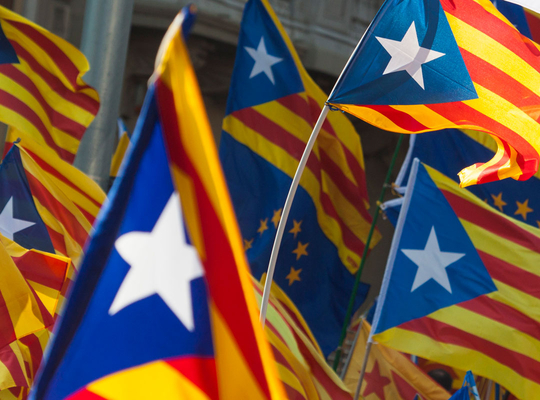You are here
Catalan Parliament President to face court for allowing democratic debate on independence

Carme Forcadell, the President of the Catalan Parliament, will testify before the High Court of Catalonia on 8 May for allowing a debate in the plenary on an independence resolution. She is accused of non-cooperation for not having called a stop to the debate, which was suspended by the Constitutional Court after a complaint by the Spanish government. Belgian Member of Parliament Peter Luykx is a close observer of the Catalan self-determination issue and reacts sharply to this event.
For the umpteenth time now, the Spanish Government has, without due authorisation, made use of their juridical system to tinker with Catalonia’s autonomy. “The bare fact that the President of the Catalan Parliament is dragged before the court because she allowed a legitimate democratic debate is unheard of”, says Luykx. “Imagine the President of the Flemish Parliament, Jan Peumans, being condemned by the Belgian court because he allowed a debate on Flemish autonomy in the Flemish Parliament. This is entirely inconsistent with democratic principles recognised today.”
Symbol of democracy
In modern politics, a parliament is a symbol of democracy and must remain a hallowed space for debate without fear of prosecution. Spain is a country where the legal system and politics are tightly intertwined. Indeed, this led to the politically-tinged appointment of the Spanish Constitutional Court, which the Spanish Government now uses to crack down on the Catalan call for more self-determination.
According to Luykx, the most pressing issue is the politicisation of the court and the legalisation of political issues. This does not belong in a modern democratic state undergirded by the principle of the rule of law. However, Madrid can currently give or withhold permission to debate independence in Spain’s autonomous regions. The problem for Catalonia is that Spain still has the final say. The charter on Catalan autonomy does not transcend Spanish law, which means the Catalans are forced to resist with one hand tied behind their back.
Intimidation must stop
Meanwhile, the Spanish government continues to lash out and threaten lawsuits against any party who dares question Spain’s unity. It’s for that reason that Luykx reacts so sharply: “Madrid’s message is clear: whether you are with us or against us, choosing independence will be severely punished. This intimidation must stop today.”

